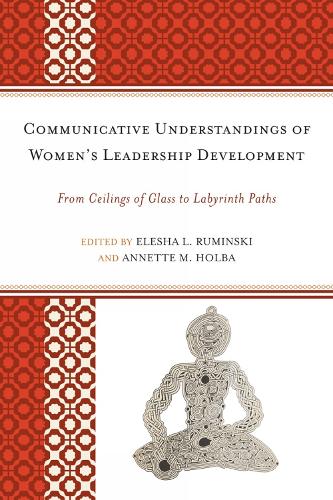
Communicative Understandings of Women's Leadership Development: From Ceilings of Glass to Labyrinth Paths
(Paperback)
Publishing Details
Communicative Understandings of Women's Leadership Development: From Ceilings of Glass to Labyrinth Paths
By (Author) Elesha L. Ruminski
Edited by Annette M. Holba
Contributions by Alice H. Eagly
Contributions by Janie Harden Fritz
Contributions by Tamara L. Burke
Contributions by Ned S. Laff
Contributions by Erin L. Payseur
Contributions by Diane A. Forbes Berthoud
Contributions by Sheri A. Whalen
Contributions by Amy C. Branam
Bloomsbury Publishing PLC
Lexington Books
21st November 2011
United States
Classifications
Tertiary Education
Non Fiction
Management: leadership and motivation
658.40082
Physical Properties
Paperback
242
Width 155mm, Height 232mm, Spine 17mm
372g
Description
Communicative Understandings of Women's Leadership Development: From Ceilings of Glass to Labyrinth Paths, edited by Elesha L. Ruminski and Annette M. Holba, intertwines the disciplines of communication studies, leadership studies, and women's studies to offer theoretical and practical reflection about women's leadership development in academic, organizational, and political contexts. Women's leadership development exists at the intersection of consciousness-raising, communication competence, and education to increase one's knowledge and practice of "leadership," which makes the weaving together of these three disciplines important.
Thus, Communicative Understandings of Women's Leadership Development claims a space for women's leadership studies and acknowledges the paradigmatic shift from discussing women's leadership using the glass ceiling phenomenon to what Eagly and Carli (2007) identify as the labyrinth of leadership. Recognizing this metaphoric shift is crucial because many women now develop leadership amid the postmodern flux of organizational change; hierarchical, top-down systems are being eroded in lieu of transformational, collaborative, even improvisational leadership processes.
Women's leadership studies is emerging as a fruitful interdisciplinary area that reframes the debate about whether we live, work, and learn within a third-wave feminist or post-feminist context. While this area might include feminist theorizing, it also might not emphasize such epistemologies. For this reason, Ruminski and Holba's edited collection explores and highlights a variety of feminist and non-feminist intersections, and is thus an important and timely contribution to both marking where we are with women's leadership development in higher education and how women can further develop themselves as leaders.
Author Bio
Elesha L. Ruminski is chair and assistant professor of communication studies and coordinator of leadership studies at Frostburg State University.
Annette M. Holba is assistant professor of rhetoric at Plymouth State University.
